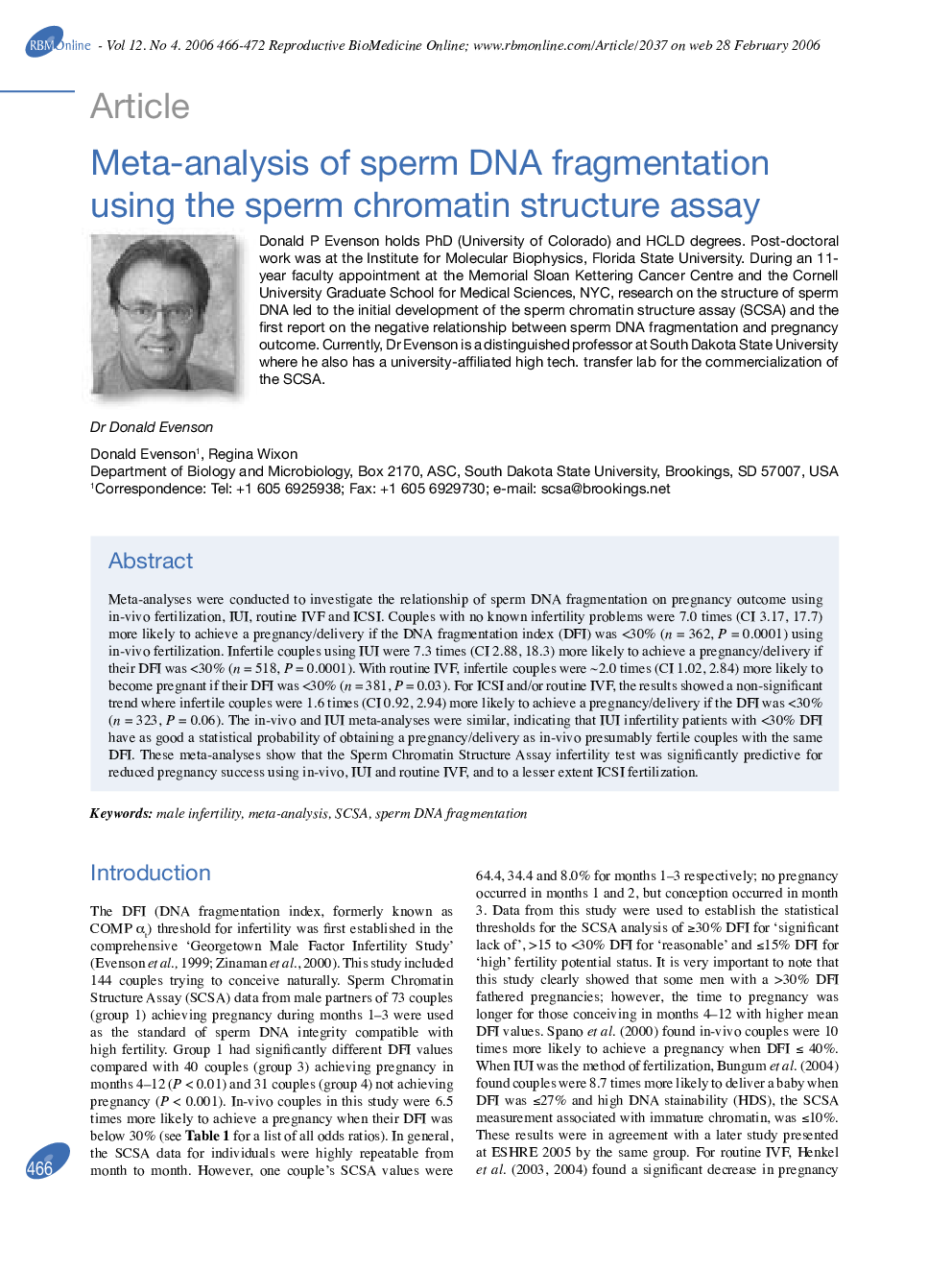| Article ID | Journal | Published Year | Pages | File Type |
|---|---|---|---|---|
| 3973522 | Reproductive BioMedicine Online | 2006 | 7 Pages |
Meta-analyses were conducted to investigate the relationship of sperm DNA fragmentation on pregnancy outcome using in-vivo fertilization, IUI, routine IVF and ICSI. Couples with no known infertility problems were 7.0 times (CI 3.17, 17.7) more likely to achieve a pregnancy/delivery if the DNA fragmentation index (DFI) was <30% (n = 362, P = 0.0001) using in-vivo fertilization. Infertile couples using IUI were 7.3 times (CI 2.88, 18.3) more likely to achieve a pregnancy/delivery if their DFI was <30% (n = 518, P = 0.0001). With routine IVF, infertile couples were ~2.0 times (CI 1.02, 2.84) more likely to become pregnant if their DFI was <30% (n = 381, P = 0.03). For ICSI and/or routine IVF, the results showed a non-significant trend where infertile couples were 1.6 times (CI 0.92, 2.94) more likely to achieve a pregnancy/delivery if the DFI was <30% (n = 323, P = 0.06). The in-vivo and IUI meta-analyses were similar, indicating that IUI infertility patients with <30% DFI have as good a statistical probability of obtaining a pregnancy/delivery as in-vivo presumably fertile couples with the same DFI. These meta-analyses show that the Sperm Chromatin Structure Assay infertility test was significantly predictive for reduced pregnancy success using in-vivo, IUI and routine IVF, and to a lesser extent ICSI fertilization.
